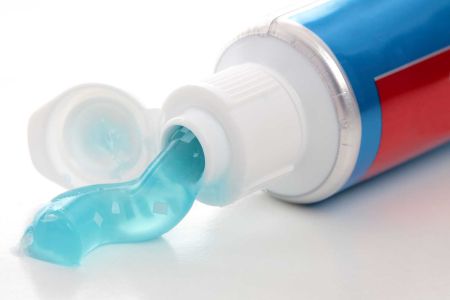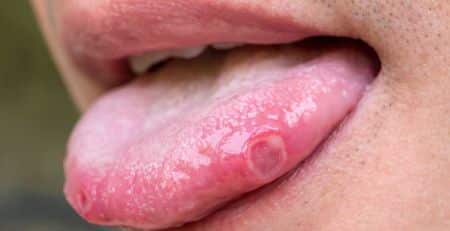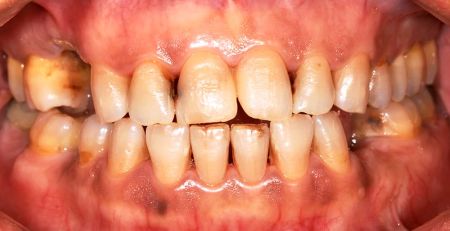Do you experience sharp, sudden pain when consuming hot or cold foods? If so, you may be suffering from tooth sensitivity. This common dental condition affects millions and can significantly impact your daily life.
Table of Contents
Tooth sensitivity, or dentin hypersensitivity, occurs when the protective layer of enamel on your teeth wears down, or the underlying dentin layer becomes exposed.
The dentin contains tiny tubules that connect to the nerve endings in your teeth, making them more susceptible to external stimuli. When these tubules are exposed, hot, cold, sweet, or acidic substances can trigger a painful reaction.
What Causes Tooth Sensitivity?
Tooth sensitivity can be caused by various factors that expose the underlying nerves of the teeth. Here are common causes of tooth sensitivity:
- Enamel erosion: The outer layer of the tooth, called enamel, protects the underlying dentin and nerves. When the enamel erodes due to factors like acidic foods/drinks, aggressive brushing, or tooth grinding, the dentin becomes exposed, leading to sensitivity.
- Gum recession: Receding gums expose the sensitive root surfaces of the teeth. This can occur due to gum disease, aggressive brushing, or aging. Exposed roots are more susceptible to sensitivity.
- Tooth decay: Cavities that reach the dentin or progress deeper can cause tooth sensitivity. Decay weakens the tooth structure, exposing the nerves to external stimuli.
- Tooth fractures or cracks: Cracked or fractured teeth can create pathways for stimuli to reach the nerves, resulting in sensitivity. This can happen due to trauma, biting on hard objects, or teeth grinding.
- Teeth whitening: Some teeth whitening treatments, especially those with high bleaching agents, can cause temporary tooth sensitivity. It usually subsides after the whitening process is complete.
- Dental procedures: After specific dental procedures, such as fillings, crown placements, or professional cleanings, teeth may become temporarily sensitive. This sensitivity typically resolves on its own.
- Tooth grinding (bruxism): Persistent teeth clenching can wear down the enamel, leading to sensitivity. Bruxism is often related to stress or an abnormal bite.
- Acidic diet: Frequent consumption of highly acidic foods and beverages, such as citrus fruits, sodas, or sports drinks, can erode the enamel and expose the sensitive dentin.
- Overuse of mouthwash: Some mouthwashes contain alcohol or acidic ingredients that can contribute to enamel erosion and sensitivity if used excessively or without proper rinsing.
- Dental treatments: Certain dental treatments, like deep cleanings or root planing for gum disease, may cause temporary sensitivity as the gums heal and adjust.
Several factors can contribute to tooth sensitivity. One common cause is tooth enamel erosion due to aggressive brushing, acidic foods and beverages, or tooth grinding.
Gum recession, which exposes the sensitive root surfaces, can also lead to sensitivity. Additionally, dental conditions like tooth decay, cracked teeth, or worn fillings can contribute to sensitivity.

Dental Treatments for Tooth Pain
Fortunately, dental options are available to alleviate tooth sensitivity and improve oral comfort. Here are some common treatments:
- Desensitizing Toothpaste: Special toothpaste formulated for sensitive teeth can help block the tubules in the dentin and reduce sensitivity over time. Regular use can provide relief and protect your teeth from further sensitivity.
- Fluoride Treatment: A professional fluoride treatment can strengthen tooth enamel and reduce sensitivity. The dentist will apply a concentrated fluoride gel or varnish to your teeth, helping to remineralize and protect the enamel.
- Dental Bonding: In cases where tooth sensitivity is caused by exposed roots or worn enamel, dental bonding may be recommended. This procedure involves applying a tooth-coloured resin to the affected areas, covering and protecting the exposed dentin.
- Dental Sealants: Dental sealants are thin coatings applied to the chewing surfaces of the teeth, primarily on the back molars. They protect against sensitivity triggers, such as cold or sweet foods, by sealing off the grooves and preventing direct contact with the dentin.
- Gum Grafting: If gum recession is the cause of your sensitivity, a gum grafting procedure may be necessary. During this surgical procedure, the dentist will take tissue from another part of your mouth and graft it onto the affected area, covering the exposed roots and reducing sensitivity.
It is essential to consult with your dentist to determine the underlying cause of your tooth sensitivity and develop a personalized treatment plan. They can evaluate your oral health, identify triggers, and recommend the most appropriate dental options for your specific situation.
In addition to professional treatments, practising good oral hygiene at home is crucial. Use a soft-bristled toothbrush and gentle brushing technique to avoid further enamel erosion.
Limit your consumption of acidic and sugary foods and beverages, and consider using a mouthguard if you grind your teeth.
Remember, tooth sensitivity should not be ignored or tolerated. By seeking dental care and following the recommended treatment options, you can find relief from tooth sensitivity and enjoy a pain-free smile.
Take the first step towards a comfortable and healthy mouth by scheduling an appointment with Amazing Smiles today.
Our experienced team is here to help you regain control over tooth sensitivity and restore your oral well-being.
References
- Orchardson, R., & Gillam, D. G. (2006). Managing dentin hypersensitivity. Journal of the American Dental Association (1939), 137(7), 990-998. doi:10.14219/jada.archive. 2006.
- West, N. X. (2013). Dentine hypersensitivity: Preventive and therapeutic









